Graham Reid | | 7 min read

When 77-year old Bob Dylan plays two concerts in New Zealand in August – Auckland on 28, Christchurch two nights later – it is hard to fathom who might turn out to see him.
There will be the loyalists who will enjoy and decode for days if not months what he does, and no doubt the curious who think that – despite dire warnings he can no longer sing as he once did, mostly doesn't play guitar but stands behind keyboards, and barely engages with his audience – if they don't see him this time then they might never.
There might be a few younger people (under 30) for whom he is a legend from their parents and grandparent's generation . . . and there will be those of that vintage who are glad it's seated.
There won't be those who were once into Dylan but will stay home in their thousands: these are the people who lost contact with Bob, probably after Blood on the Tracks in '75, didn't even bother with those three Jesus albums and by the time he was starting to make some kind of late career comeback in the late Nineties and early 21stcentury just couldn't get past the croaky voice.
They once loved Don't Think Twice It's Alright, maybe went on protest marches singing Blowin' in the Wind because they felt the times they were a-changin' and just really got the whole speed-cum-poetry vibe of Blonde on Blonde.
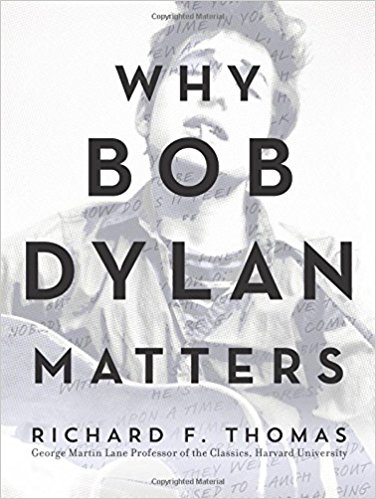 Yeah, John Wesley Harding was a good album and some of that stuff with the Band, but then . . .
Yeah, John Wesley Harding was a good album and some of that stuff with the Band, but then . . .
Richard F Thomas, a New Zealand-born professor in classics at Harvard, has written this wonderful book Why Bob Dylan Matters and every one of those separate groups – loyalists, the curious, the young, the elderly and those who left their Dylan behind – would be persuaded by his writing that this Bob Dylan man matters more than they had ever thought.
Thomas writes with a compelling style which not only avoids all the jargon which bogs down most academics – there is no hegemony, pedagogy, post-colonial, meta-blah here – but engages right from the first page when he speaks of leaving New Zealand for further study in the classics in Michigan and selling his albums. But keeping back Blonde on Blonde and Songs of Leonard Cohen which followed in a trunk.
For the past 40 years he has been a classics professor living in the world of the Romans and Greeks, but also such a Dylan fan that he instituted a course in Dylan studies at Harvard which has proven to be extremely popular.
 You can see why that might be so from these lively pages where he effortlessly weaves between Dylan's words and those of lyric poets like Catullus (who died about 54BC) . . . and he is not drawing a long bow to make the connections because it is clear that the teenage Dylan, who was as smitten by ancient Rome as the young Thomas had been, was increasingly drawn to this ancient world for its imagery and poetry.
You can see why that might be so from these lively pages where he effortlessly weaves between Dylan's words and those of lyric poets like Catullus (who died about 54BC) . . . and he is not drawing a long bow to make the connections because it is clear that the teenage Dylan, who was as smitten by ancient Rome as the young Thomas had been, was increasingly drawn to this ancient world for its imagery and poetry.
Thomas notes that many writers pick up on the line in Dylan's high school yearbook where, beneath a photo of Dylan with his hair swished up in a pompadour, that his ambition was the join Little Richard's band. But few note the next reference, that Dylan was in the Latin club . . . and here is an early key to understanding.
This was a time, Thomas notes, when films about ancient Rome (The Robe, Julius Caesar, Helen of Troy and later Spartacus) were in cinemas everywhere and the young Dylan, trapped in smalltown Hibbing, must have seen them. After all, there was nothing else to do, and his uncle owned one of the four movie theatres in town which was just down the road from his home so . . .
Dylan says he played a centurion in a school play (“I felt like a star. I liked the costume . . . as a Roman soldier I felt like part of everything” he wrote in Chronicles Vol 1) and he would visit Rome as early as January 1963 (“Why not Paris, Berlin or Madrid?” asks Thomas). He wrote Goin' Back to Rome (“that's where I was born”) not long after.
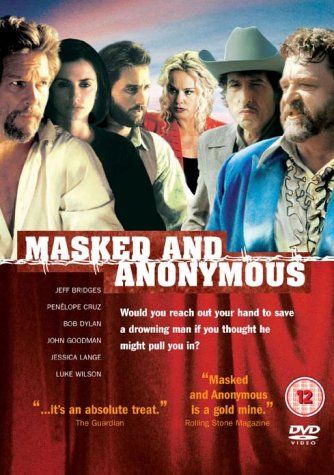 The Roman and Greek poets, their images and themes entered his canon and have remained there ever since, sometimes in the foreground (as when he liberated lines from Ovid for Ain't Talkin' on the 2006 album Modern Times) and most often just as a running subtext or reference point. (Early Roman Kings on Tempest in 2012 alludes to both those old emperors and a Sixties street gang from the Bronx of that name.)
The Roman and Greek poets, their images and themes entered his canon and have remained there ever since, sometimes in the foreground (as when he liberated lines from Ovid for Ain't Talkin' on the 2006 album Modern Times) and most often just as a running subtext or reference point. (Early Roman Kings on Tempest in 2012 alludes to both those old emperors and a Sixties street gang from the Bronx of that name.)
What makes Why Bob Dylan Matters so fascinating is not just how Thomas finds and follows threads but just how persuasive his points are.
Thomas widens and then focuses his thinking on how Dylan has adopted, appropriated and recalibrated the lyrics of poets like Rimbaud and lines (and themes) from old folk songs into his own work, not plagiarism but rather the idea of intertextuality where the words of others are recontextualised and brought into resonant songs which gives them greater depth and breadthy.
It all makes for fascinating and informative reading.
Unlike some academic writing where you feel a leap into the improbable to support a thin case, Thomas ties his ideas together in a gentle but firm manner, and with digressions into a trip he made to where Dylan grew up (Hibbing and Duluth), the work of other commentators on Dylan, references to interviews which few would have heard, films like the much ignored Masked and Anonymous as well as I'm Not There and so on. Dylan's own words in lyrics or interviews and from his radio show provide the convincing start and end point to the discussion.
The case is that Dylan is not just a genius songwriter and interpreter but a scholarly one whose thinking spans centuries in way that no other contemporary writer does. Or perhaps even could do.
They don't teach Latin anymore, the Dead White Males canon has been discredited and – Gladiator aside – we don't see Roman or Greek sword'n'sandal epics on the big screen.
The work and world of the ancients and the folkloric songs have been marginalised into academia and yet here they are in Dylan's remarkable body of work which spans more than five decades.
Maybe Game of Thrones will inspire a new generation of writers who will look to the mythic?
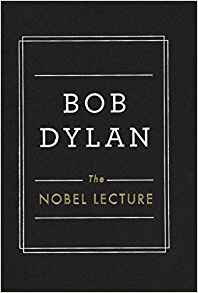 Probably not, a new slash and kill video game seems its more likely offspring.
Probably not, a new slash and kill video game seems its more likely offspring.
However you cut it – and Thomas can slice very thinly but with an assured blade – Bob Dylan came from a very different sensibility.
In his Nobel Lecture after he was awarded the Prize for Literature – available in an elegantly slim monograph – Dylan spoke of being uncertain how his songs related to literature and so folded back into formative musical experiences which began with Buddy Holly whom he saw perform just a few days before the singer-songwriter was killed in a plane crash in February '59.
Just as that disaster struck him he hears a song by Leadbelly and that opened up a whole new world of meaning, something much deeper and although darker also more illuminating. He followed Leadbelly's song back through an unheard and little known history of string bands, ancient blues and more. And he got the vernacular down to draw on for his own early work.
Then he steps sideways because, “I had something else as well. I had principles and sensibilities and an informed view of the world”. And that came from the books he read in school: Don Quixote, Ivanhoe, Robinson Crusoe, Gulliver's Travels, Tale of Two Cities and more.
 Dead White Males for sure, but a canon of ideas and sensibilities he could draw on.
Dead White Males for sure, but a canon of ideas and sensibilities he could draw on.
He then singles out three – Moby Dick, All Quiet on the Western Front and The Odyssey – and in his characteristic way of imagistic writing he retells the broad narratives of these, exploring their metaphorical and metaphysical meanings.
It is quite something to read . .. and then he returns to the moment: How do his songs relate to literature as great as these, and other, writers?
In some ways they don't, “they are meant to be sung, not read. The words of Shakespeare's plays were meant to be acted on the stage. Just as lyrics are meant to be sung”.
He then encouraged his audience to listen to his lyrics the way they were intended to be heard, in concert or on record.
He ended with a quote from Homer to drive his point home.
This is what Thomas conveys in his marvellous book, that these are songs – malleable, prone to changes of expression over time as the artist and the audience occupy different emotional spaces.
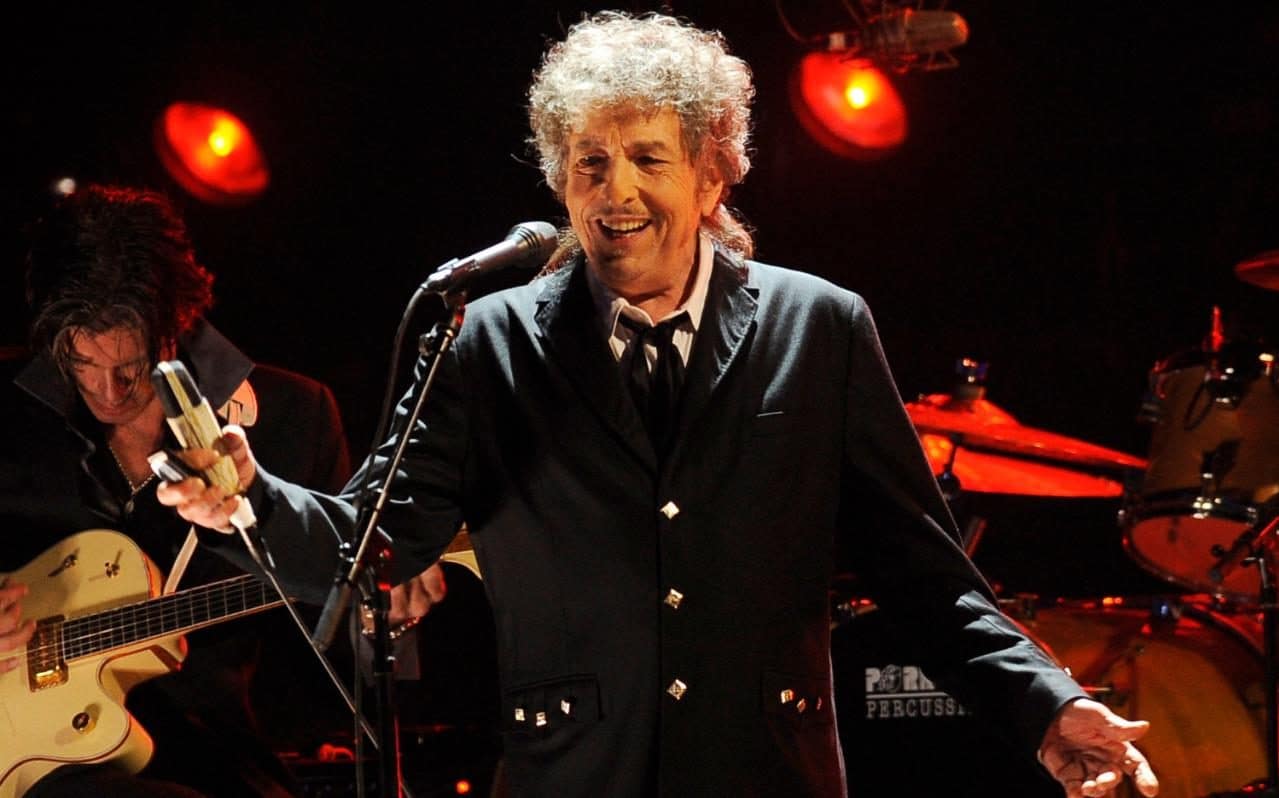 But they are songs grounded in a remarkable tradition of lyric poetry which dates back to the ancient Greeks and Romans on whom Dylan has always, and increasingly Thomas argues, has drawn from.
But they are songs grounded in a remarkable tradition of lyric poetry which dates back to the ancient Greeks and Romans on whom Dylan has always, and increasingly Thomas argues, has drawn from.
The final chapter from an author who sees his subject in concert two or three times every year is about Dylan live.
Anyone wavering about whether to see Bob Dylan in concert should read Thomas' book (and find Dylan's Nobel speech on-line).
Then you would be in no doubt that – whether you like what he does, maybe object to him destroying that old favourite song from an important period in your younger self, or simply don't know the newer stuff – you are witnessing a unique bard, a lyric poet, and a songwriter whose work is deeper than our imaginings.
.
Elsewhere has a considerable amount on Bob Dylan including concert reviews, a piece of his recent art, overviews and in-depth reviews of his albums and box sets in the Bootleg Series. It all starts here.
.
WHY DYLAN MATTERS by Richard F Thomas, Dey St/William Morrow
THE NOBEL LECTURE by BOB DYLAN, Simon and Schuster


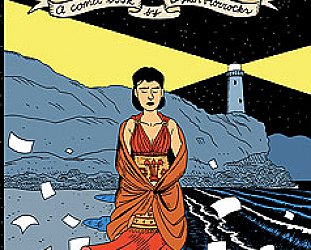
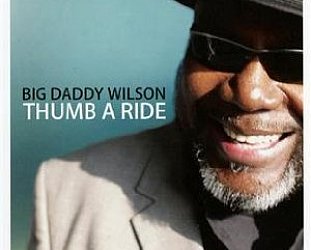
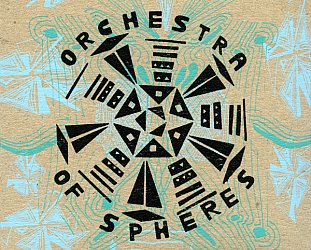
Jeffrey Paparoa Holman - Jun 26, 2018
Great article on a fascinating book, thanks Graham. Ticket booked for August, for course, for all the reasons you suggest above and more. Cheers. Jeffrey
Savepost a comment